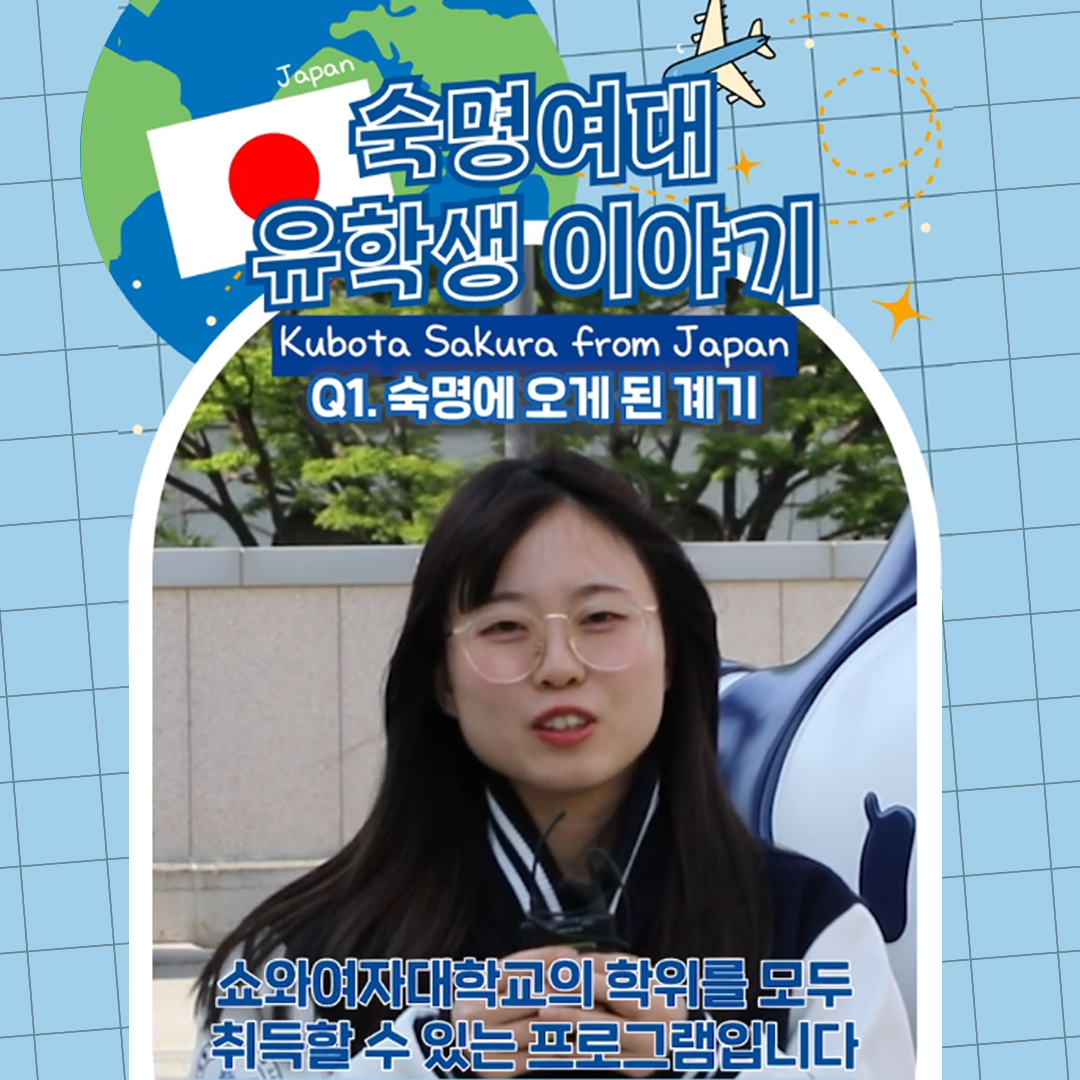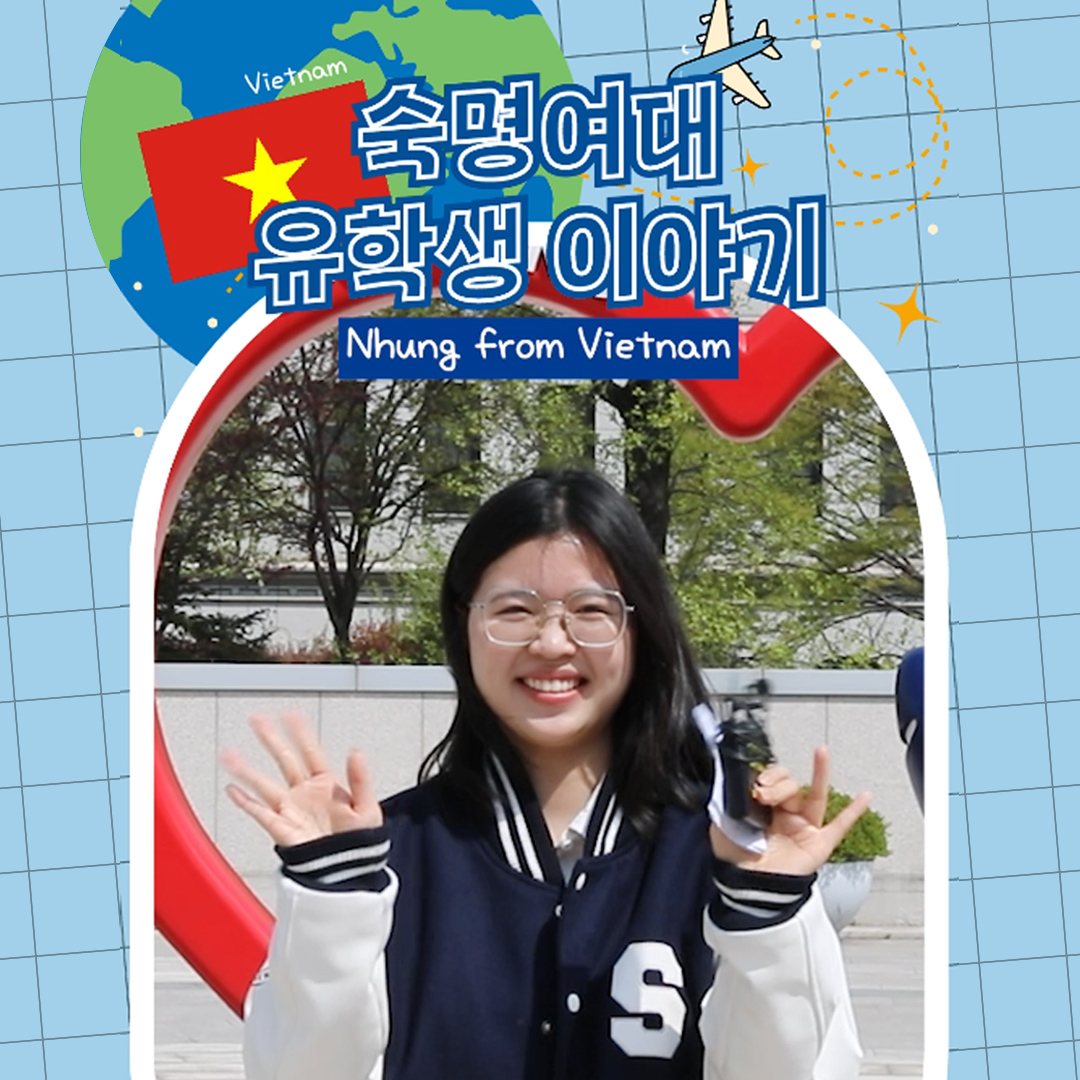- About Sookmyung
- Admission
-
Academics
-
Undergraduate
- College of Liberal Art
- College of Science
- College of Engineering
- College of Human Ecology
- College of Social Sciences
- College of Law
- College of Economics & Business Administration
- College of Music
- College of Pharmacy
- College of Fine Arts
- Sunheon College
- College of Global Convergence
- Independent Division
- Graduate School
- Graduate School of Professional Studies
- Graduate School of Education
- International Programs
- Resources
-
Undergraduate
- Life on campus
- News
- etc
- User Guide
사이트맵
Admission
Welcome to Sookmyung Women's University.
International Programs
There are many opportunities to experience Korean traditional culture both on and off campus through lectures and field trips.
Academic Calendar
학사일정 더보기Notice
-
[Admission] 2025 Fall Admission Result Check for Undergraduate_3R (2025학년도 학부 후기 3차 합격자 안내) : 8/1 오후 2시 발표 (August 1st 2 p.m.)
-
[Admission] [3차]2025 후기 3차 일반대학원 외국인전형 합격자 발표안내 / 2025 Fall Admission Final Result Check: Graduate 3rd Round / 2시부터 확인 가능
-
[Admission] 2025 Fall Admission Result Check for Undergraduate_2R (2025학년도 학부 후기 2차 합격자 안내) : 오후 2시 발표
-
[Admission] 2025학년도 후기3차 일반대학원 부모모두 외국인 입학전형 면접 안내 / 2025 Graduate school Fall interview notice (3rd)
-
[Admission] [2차]2025 Fall Admission Final Result Check: Graduate 2nd Round (2025 후기 2차 일반대학원 외국인전형 합격자 발표안내) / 11시부터 확인 가능
SM Media
숙명을 만나는 또 하나의 방법, SNS에서 어떤 재미있는 일들이 펼쳐지고 있나요?
- ☞ Click to watch more videos! 유튜브
- 인스타그램
- 블로그
- 𝙎𝙈𝙐 𝙄𝙣𝙩𝙚𝙧𝙣𝙖𝙩𝙞𝙤𝙣𝙖𝙡 𝙎𝙩𝙪𝙙𝙚𝙣𝙩 𝙎𝙚𝙧𝙫𝙞𝙚𝙘𝙚𝙨 TikTokClick to watch more videos! ☜
- 𝙎𝙈𝙐 𝙄𝙣𝙩𝙚𝙧𝙣𝙖𝙩𝙞𝙤𝙣𝙖𝙡 𝙎𝙩𝙪𝙙𝙚𝙣𝙩 𝙎𝙚𝙧𝙫𝙞𝙚𝙘𝙚𝙨 instagram
SM Information
-

Year of Foundation
1906
-

No. of Enrolled Students (As of April 2025)
12519
-

No. of Full-time Faculty (As of April 2025)
419
-

Campus Area (㎡)
68334
-

Exchange status with Overseas Universities
(As of April 2025)402 Schools in 59 Countries
-

Scholarship per Person
(Million Won)353






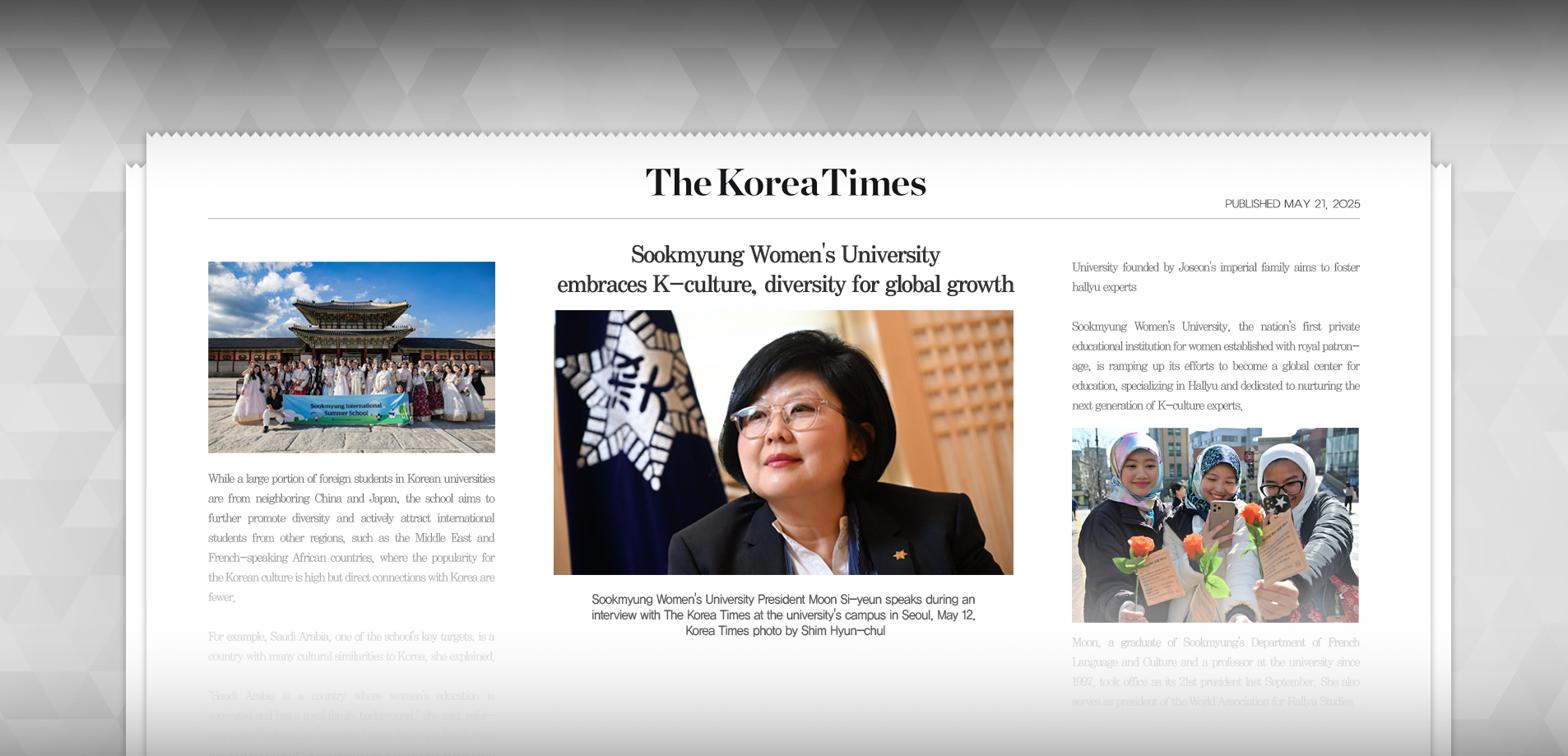
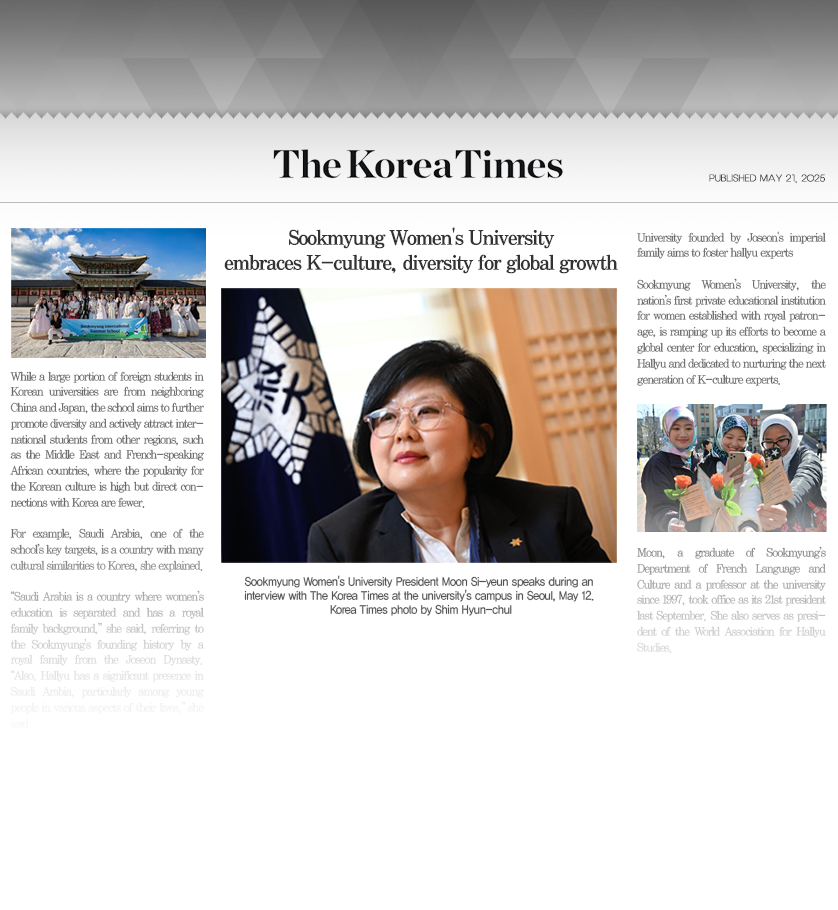
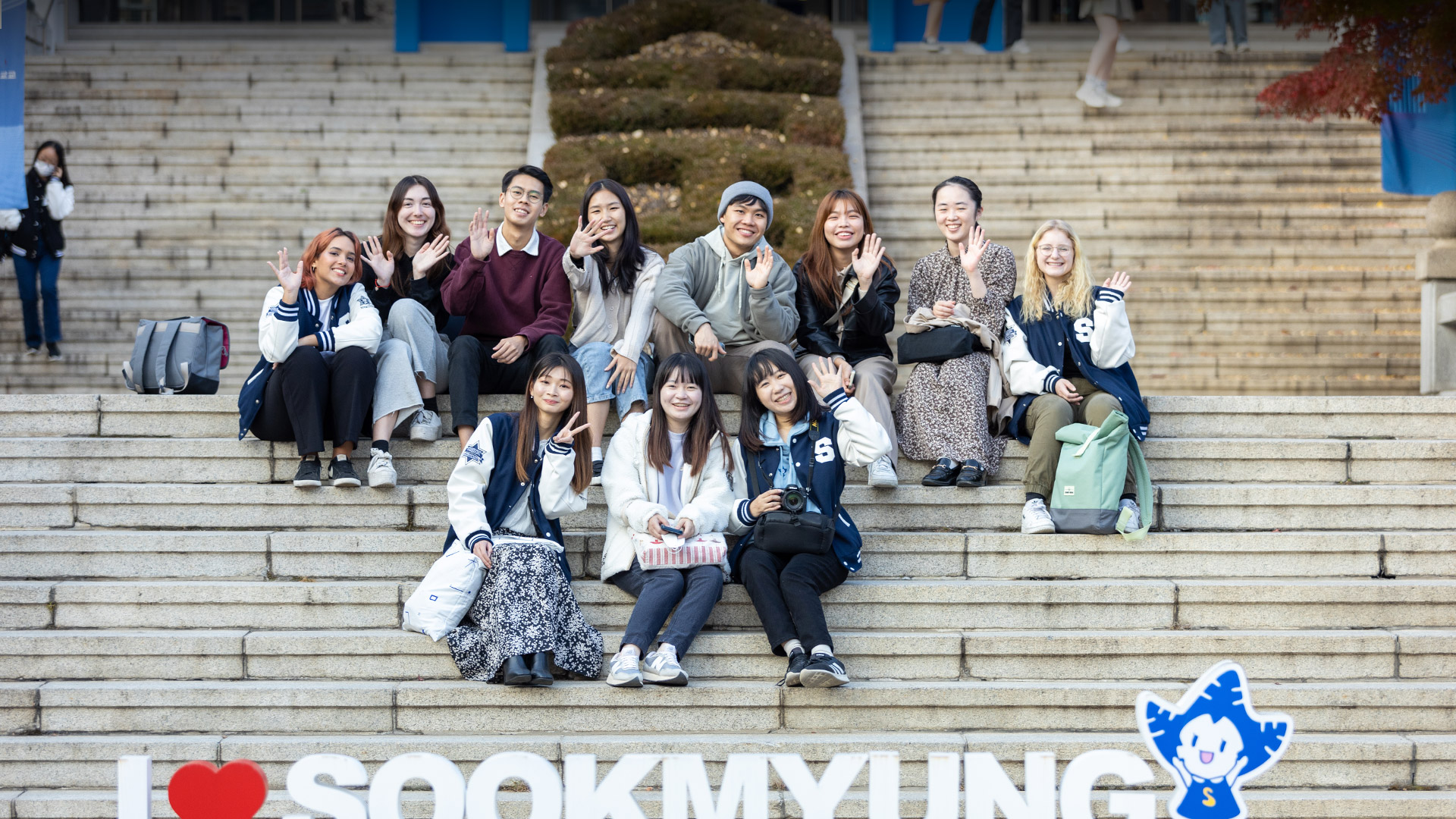
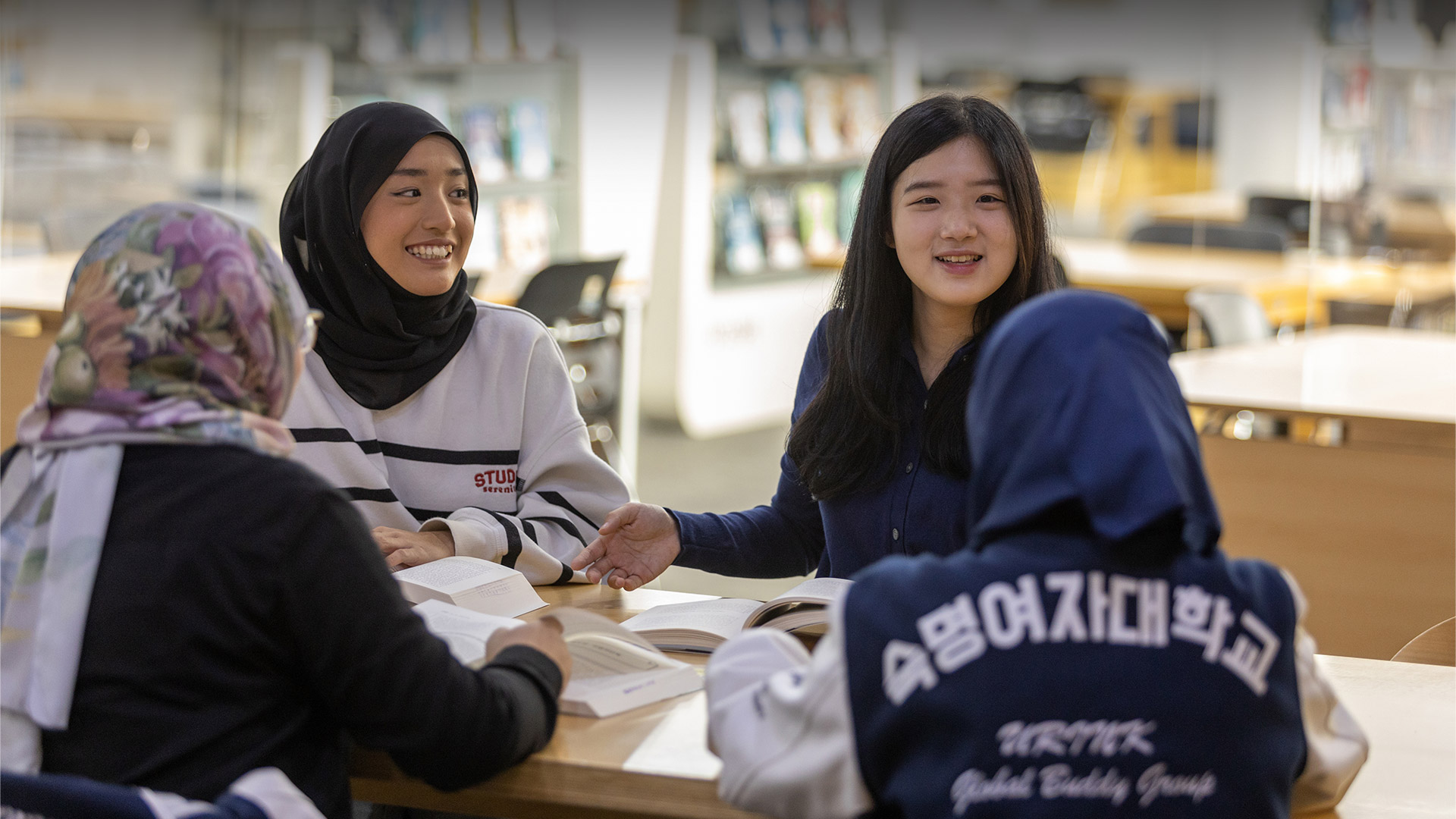
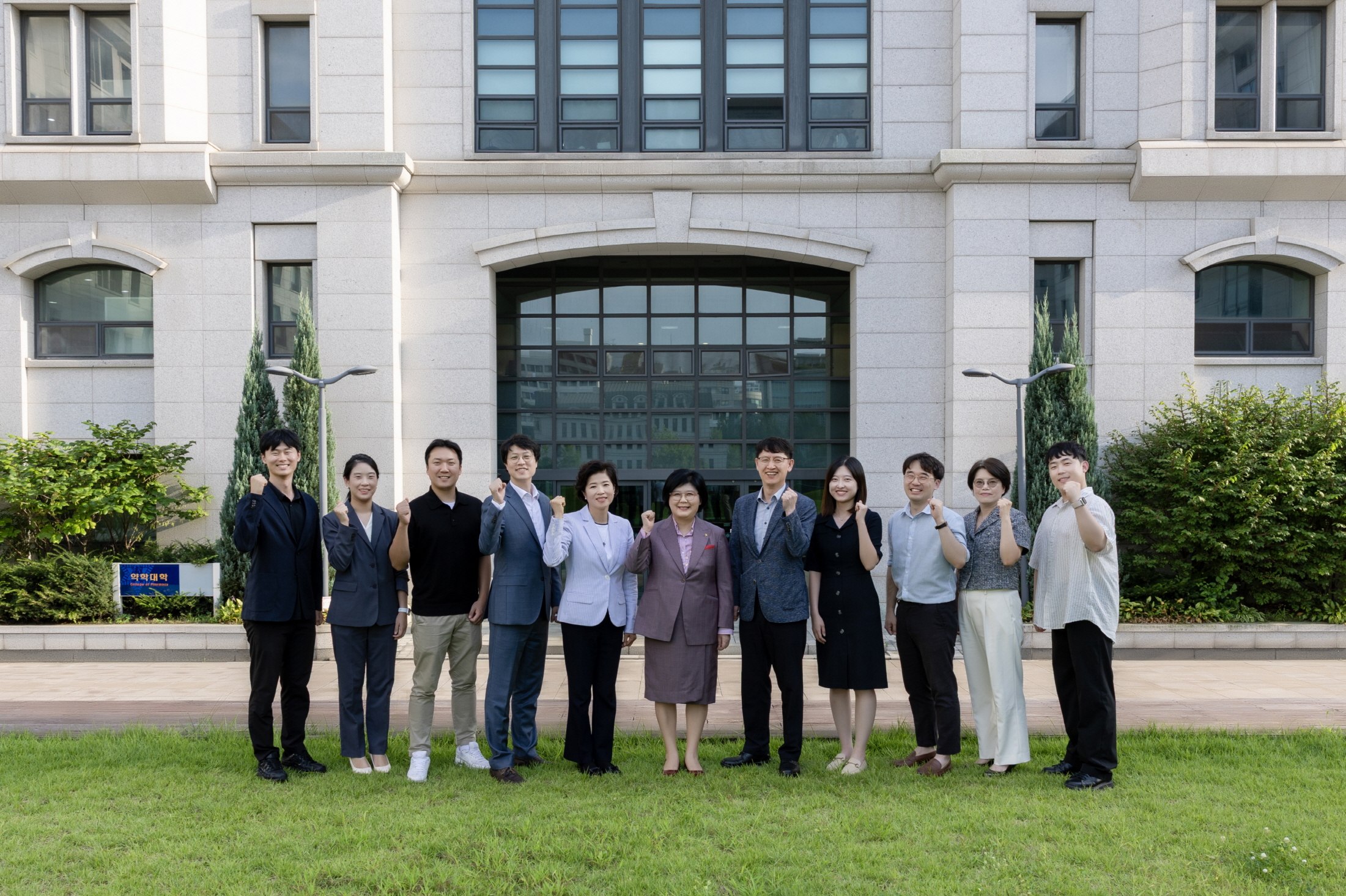
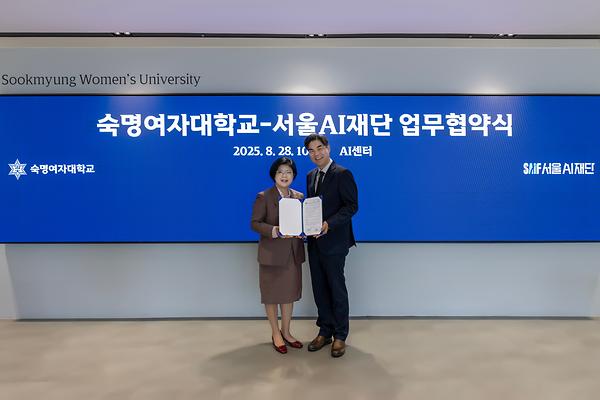



![[SMU] Sookmyung × Harvard Global Program✈](http://img.youtube.com/vi/JC6McUBmQ6E/maxresdefault.jpg)
